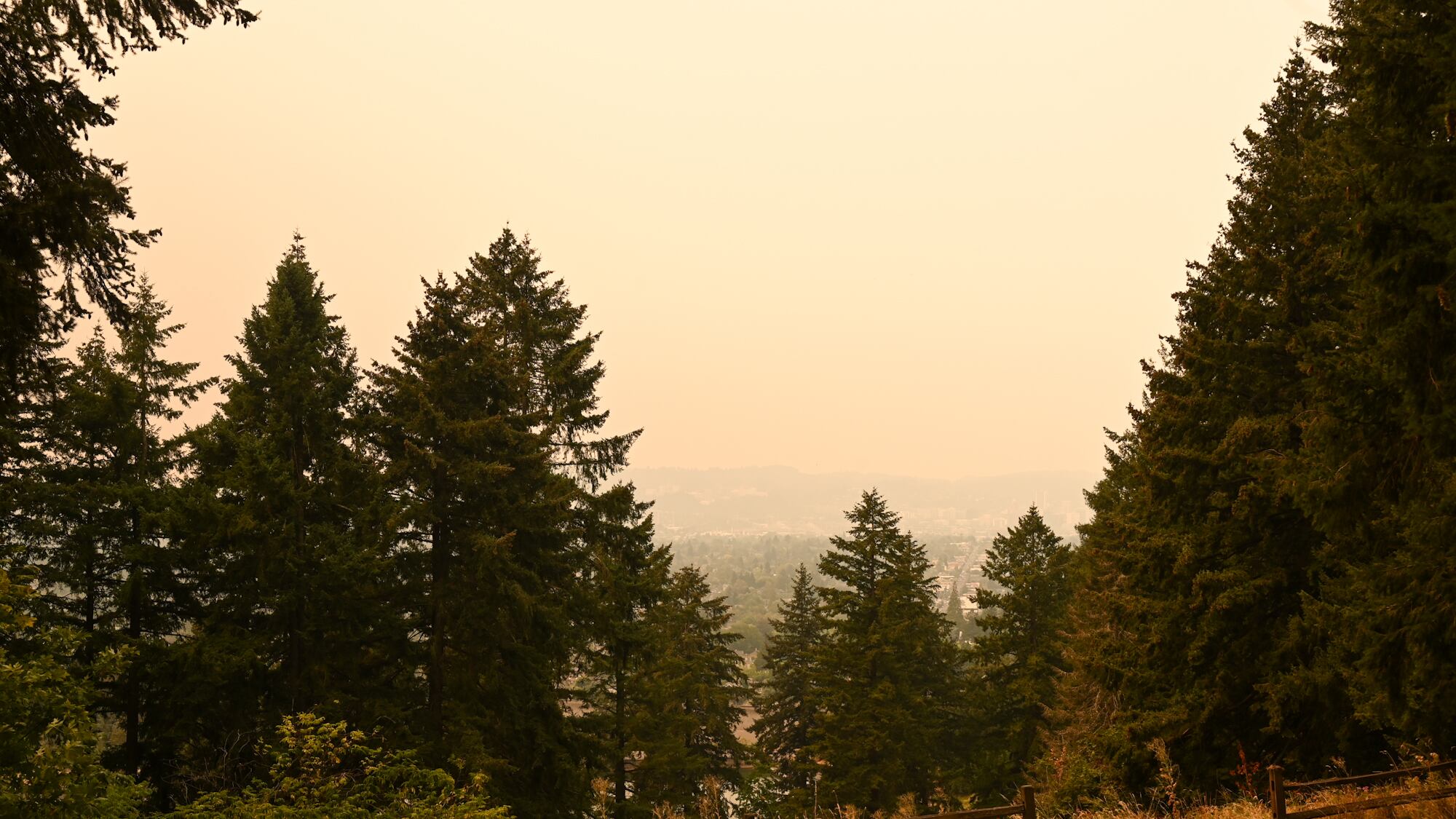The incidents: For the past two months, Mt. Tabor Park has had a problem: little fires everywhere. Thirty-six of them, to be exact.
Evidence that an arsonist was at work: dark burn scars up and down the flanks of the Southeast Portland mountain.
Neighbors surrounding Mount Tabor, on high alert during a summer drought and more recently a “red flag” warning due to high winds and dry temperatures, leaped into action and started mounting nighttime volunteer patrols to watch for fires, outfitted with shovels if they needed to put out any flames or embers.
Arson investigators with Portland Fire & Rescue last week called it one of the “more complex” cases in recent history due to the vastness of the park—191 acres—and the sheer number of entrance and exit points.
On Sept. 11, three teenagers were arrested and booked on felony arson charges related to the spree of fires. Fire officials said they believed the threat had been extinguished.
The suspects: Samuel Perkins and Malik Hares, both 18 years old, were indicted Sept. 12 on first-degree arson charges. Both pleaded not guilty during arraignment in Multnomah County Circuit Court and were released into their families’ custody until their next court appearance. The Multnomah County District Attorney’s Office declined to prosecute another defendant, citing lack of evidence.
Hares and Perkins work full time at McDonald’s, according to court documents. Hares appears to have dropped out of high school after 10th grade, while Perkins appears to have graduated.
Both live in single-family homes in middle- to high-income neighborhoods on Portland’s east side, west of 82nd Avenue.
At the height of the scare, a Nextdoor account under the name Malik Hares warned neighbors of fires in a post: “Scared off a group of teenagers who looked like they were trying to do a fire…I mean who’s dumb enough to do this during the day—these tabor fires needs to stop!”
Previously: Two 18-year-old Portlanders indicted on arson charges stemming from Mount Tabor fires.
Prosecutors agreed Monday to allow the pair out of jail without posting bail. As a condition of release, Judge Adrian Brown issued no-contact orders between the two defendants and imposed a restraining order forbidding them from coming within 150 feet of any Portland park. Also, they can’t possess any substances used to ignite fires.
Midge Pierce, a Mount Tabor neighbor, says she’s not sure what to think of the teens being released.
“I think there’s two schools of thought, and I haven’t determined where I am. One is that it was crazy to release them,” Pierce says. “Then there are those who think, boys will be boys and they should be given a second shot. If these kids had been Black, would the book have been thrown at them? That’s something to raise.”
The motive: A probable cause affidavit provided to WW paints a picture of two teenagers seeking no grander objective than thrills.
Hares told police he didn’t light the fires himself but was the chauffeur for his friends; he also liked to return to the scene of a fire to watch firefighters put it out. “He admitted to speaking with firefighters and an investigator about some of the fires at the scenes,” the affidavit reads.
After he was caught, police instructed Hares to call Perkins.
During that conversation, as recounted in the affidavit, Perkins and Hares mutually scolded each other: Hares said Perkins took too long to get in the car, which he said led to its identification, and Perkins “told Hares that he was putting his foot down on a few things such as Hares was not to be on the scene anymore and Hares was not to talk to the Fire Marshal anymore or any firefighters.”
According to the affidavit, Perkins “said he did it because he liked hanging out with his friends and liked driving away after they did it.”

